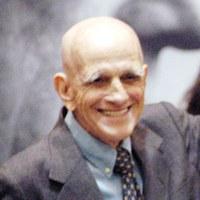Juiz de Fora (Brasil), 1925
By Flávio Aguiar
Graduated in law, before joining the high ranks of public service, he began his career in the police in the 1950s as a commissioner in Rio de Janeiro, where he spent most of his time working in an office. From this period, he drew, from the many stories he witnessed, the themes and characters that make up his body of work, which earned him the Luís de Camões Prize (2003). According to Sérgio Sant’Anna, the publication of his third book, Lúcia McCartney (1967), founded “a new order” in Brazilian literature. He anticipated the type of crime novel later developed by, among others, Patrícia Melo and Chico Buarque de Holanda.
He taught in the field of Public Relations and stood out in psychology, showcasing his rare ability to unravel complex social relationships, a skill he masterfully applied in writing his first collection of short stories, Os prisioneiros (1963). A powerful short story writer, he reveals violence through agile and concise prose, much like Dalton Trevisan from Curitiba, with whom he shared the extraordinary Brazilian short story tradition of the mid-to-late 20th century. Interested in cinematic art, he wrote several film scripts.
In 2012, he received the Manuel Rojas Ibero-American Narrative Award from the Chilean government. In 2014, he won the Jabuti Prize in the short story and chronicle category with the work Amálgama (2013).
Other works: Feliz ano novo (1975), O cobrador (1979), A grande arte (1983), Bufo & Spallanzani (1986), Vastas emoções e pensamentos imperfeitos (1988), Agosto (1990).



